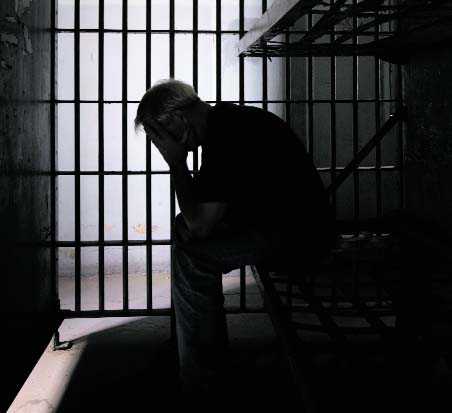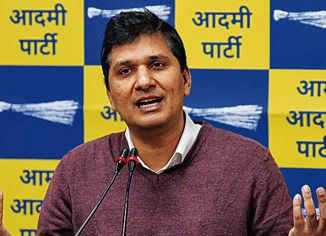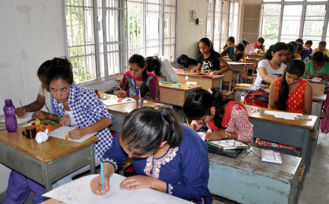
Maja Daruwala & Mrinal Sharma
There are as many reasons for a suicide as there are suicides. But clearly Faridkot jail provides just the conditions to push already anxious and vulnerable people over the edge.
Earlier this month, 67-year-old Balkar Singh killed himself in Faridkot jail. The suicide is just the latest in a grizzly line of 60 that have taken place since 2013. This works out to almost two a month in just one jail. Nationally, Punjab has the highest prison suicide rate, second only to Karnataka. This points an unwavering finger at the conditions in that hellhole and the complete neglect and callousness of all those charged with the care of the prisoners who inhabit it.
Though Faridkot jail’s bricks and mortar were fashioned into “a modern facility” in 2013, its innards retain all the long-time ills that beset prisons all across India. It crowds in 1,753 prisoners with only two-thirds of the staff sanctioned to manage them. The board of visitors is defunct. Lay visitors, government and judicial officers make up the board. The lay segment may never have been appointed. If appointed, they would not have been trained or convened, nor visited prisons regularly. That only the administration would know. Requests under the RTI Act have gone unanswered, nor is any information to be found on the government’s website. In fact, unlike other states, Punjab does not even have a website for the Prisons Department. This is entirely against the clear requirements of the Right to Information Act, which requires each public authority to voluntarily disclose statements and minutes of meetings of its boards, councils and committees. In short, it is a fatal combination of no supervision and zero transparency.
According to the National Crime Records Bureau, there are no psychologists, welfare officers or social workers in Punjab’s jails. Not surprisingly, the National Human Rights Commission (NHRC) and the State Human Rights Commission (SHRC) receive the highest number of prisoner complaints from Punjab. But the disposal is one of the lowest at just 7 per cent and 21 per cent. In a decade, overall jail inspections have fallen by 58 per cent. Alarmingly, inspection visits by medical staff have gone down by 84 per cent. In the absence of any monitoring, prisoners are regularly sent to hospital for drug withdrawal symptoms.
As the recent controversy around “Udta Punjab” has highlighted, the state is waging an unsuccessful war against drugs. It is certainly losing it in jails. In July 2012, the warden of Faridkot jail was booked for allegedly buying over 900 psychotropic tablets for an inmate. Across Punjab, there is only one medical staff for every 342 prisoners. As many as 174 people charged under the Narcotic Drugs and Psychotropic Substances Act (NDPS) have died in Punjab’s jails, 88 in 2014 and 86 in 2015. Clearly, being behind bars doesn’t mean being away from drugs.
It is not that people don’t know about the problem. In its 130-page report of 2014 on prison suicides, the NHRC points out that little has been done to improve the treatment of prisoners. In the absence of any ‘overt act of commission’, prison officials absolve themselves of any responsibility. However, the Punjab and Haryana High Court in “Amandeep vs. State of Punjab” has made it clear that people who have the care and custody of others cannot escape liability and doing so would amount to negligence.
It isn’t also as if concrete solutions have not been carefully considered. They are all there on papers yellowing with age. Simple steps would include availability of full complement of staff in each prison, in particular correctional and medical staff; robust training; and immediate appointment of and regular visits by board of visitors. Given Punjab’s particular problem with drugs, special efforts to create counselling teams and liberal communication with support structures like family are vital. Leaving this to overburdened security personnel is futile. In fact, given the steps the government has not taken to make things even marginally better, its long-held aspiration of putting in place a new law based on reform and rehabilitation instead of retribution smacks of hypocrisy.
For the administration, Balkar Singh’s suicide may be just another statistic but it reflects the desperate reality of life in a Punjab prison today. Surviving him are his two sons and grandsons. They are also incarcerated drug offenders. They are not people who draw instant empathy. What must have his final thoughts been: that he couldn’t face any more sorrow; that with a 33-year sentence it was better to end it all than realise every day that he is doomed to eternal wretchedness, and that his womenfolk are unprotected and vulnerable to every kind of exploitation. In those circumstances, taking your life might not seem an entirely irrational choice.
Maja Daruwala is Director and Mrinal Sharma a programme officer at the Commonwealth Human Rights Initiative.


























